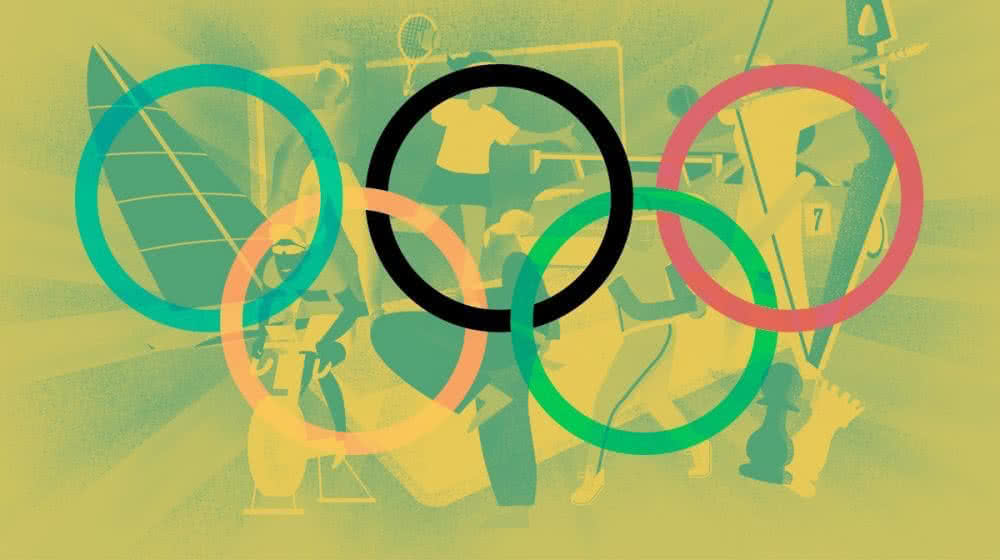Olympics Esports List Raises Eyebrows
The International Olympic Committee (IOC) has announced its first worldwide esports competition as part of the Olympics Esports Series 2023, which will include games that emulate traditional sports or have a connection to them.
The chosen games, which include titles such as “Tic Tac Bow,” “WBSC eBaseball: Power Pros,” and “Virtual Taekwondo,” have received criticism for lacking the structure and competitiveness typically associated with esports.
Many in the esports industry are concerned that the IOC does not fully understand esports and that its definition of the sport may limit its growth and development. The exclusion of popular titles, such as League of Legends, has also raised questions, but the IOC has indicated that it may consider adding more games to the list before the tournament.
Despite the controversy, the IOC’s cautious approach to esports is likely an attempt to carefully consider the implications of esports on the Olympic movement.
What Would An Olympic Esports Series Look Like?
Esports have been steadily gaining popularity and mainstream acceptance over the last decade, leading to it being officially recognized as a sport by many countries and sporting organisations.
In the past few years, there has been talk about the possibility of esports being included in the Olympic Games, leading to speculation about what an Olympic esports series would look like. On March 1, the International Olympic Committee (IOC) announced its first worldwide esports competition, which will be part of the Olympic Esports Series 2023.
While this announcement was met with excitement, it also raised some eyebrows due to the lack of popular esports titles.
The IOC’s definition of esports for the Olympic Games is different from what many people in the esports industry consider esports. Instead of including games that are typically associated with esports, such as “League of Legends,” “Counter-Strike,” or “Overwatch,” the IOC has chosen games that emulate traditional sports or have some connection to them.
The list of games chosen by the IOC for the Olympic Esports Week 2023 includes “Tic Tac Bow,” “WBSC eBaseball: Power Pros,” “Zwift,” “Just Dance,” “Gran Turismo,” “Virtual Regatta,” “Virtual Taekwondo,” “Tennis Clash,” and chess. Competitions for each game are being run as a collaboration between the games’ developers and the governing bodies that oversee each game’s corresponding traditional sport.
Many observers in the esports industry felt that the IOC’s announcement missed the mark. The event does not involve any traditional esports, nor does it include prominent sports-adjacent competitive games such as NBA 2K, FIFA, or Rocket League.
It has left some feeling like it is a simulated sports competition created as an arm of an Olympic virtual series, an extension of the international federations of the respective sports (world baseball softball confederation and international chess federation come to mind), rather than the true culmination of the titans of the esports world.
Some of the featured games, such as “Tic Tac Bow” (the game of the world archery federation) and “Tennis Clash (international tennis federation),” have made their name as a mobile game with little to no structured competitive scene.
This has led to controversy and criticism from many in the esports world who feel that the IOC does not understand what esports is and what it means to fans of the sport.
Why Is the List Controversial?
The IOC’s choice of games for the Olympic Esports Series has raised a few eyebrows in the esports industry. Many fans and experts feel that the list of games chosen by the IOC does not represent what esports is all about.
Esports is typically associated with games that are played competitively in a structured environment and involve skill, strategy, and teamwork. However, the games chosen by the IOC do not necessarily fit this definition, with some games being primarily mobile games with little to no structured competitive scene.
Many people in the esports industry feel that the IOC does not understand what esports is and what it means to fans of the sport. There is a fear that the IOC’s definition of esports may limit the growth and development of the sport, and that it may not be taken seriously by fans or potential sponsors.
While the inclusion of esports in the Olympic Games is a big step forward for the sport, many in the industry believe that the IOC needs to do more to understand what esports is and how it can be included in the Olympics in a meaningful way.
Will There Be Any Changes?
The IOC has indicated that there may be some changes to the list of games for the Olympic Esports Series 2023. The organisation has chatted with some top FIFA players, and FIFA, one of the most popular esports titles, may be added to the list.
The IOC has been deliberate in its approach to esports, taking a cautious and measured approach to the integration of gaming into the Olympics, in contrast to other organizations that have been more aggressive in promoting esports as a legitimate sport and pushing for its inclusion in major sporting events.

IOC Approach
The IOC’s approach is an attempt to appeal to fans of the Olympics by focusing on games that emulate traditional sports. However, the inclusion of some lesser-known games has been criticised, and it remains to be seen whether the IOC will take these criticisms into account and make changes to the list of games for future Olympic Esports Series.
Despite the controversy, the IOC’s approach to esports is not without merit. The potential rewards for both the esports and traditional sports worlds are significant. As esports continues to grow and gain legitimacy as a sport, we are likely to see more efforts to integrate gaming into major sporting events like the Olympics.
The Position of Esports in the Olympics
The success of the Olympic Esports Series will ultimately depend on the participation of gamers and the support of fans and sponsors.
The inclusion of esports in the Olympic Games would be a significant milestone for the esports industry. It would be an acknowledgment of the legitimacy of esports as a sport, and it would provide a platform for esports to reach a wider audience.
However, it is important that the IOC and other organizations take the time to understand what esports is and what it means to fans of the sport. Esports is a rapidly evolving industry, and its inclusion in major sporting events like the Olympics will require careful consideration and planning.
To Wrap Things Up
In conclusion, the inclusion of esports in the Olympic Games has been a topic of debate and controversy in recent years. The International Olympic Committee’s list of games for the upcoming Olympic Esports Series has raised eyebrows due to the absence of some of the most popular and competitive esports titles.
However, the IOC’s focus on games that emulate traditional sports could potentially appeal to fans of the Olympics who are not familiar with esports, and the event has the support of prominent sponsors who could bring more attention and growth to the industry.
Whether the IOC will make changes to the list of games in the future remains to be seen, but the inclusion of esports in the Olympic Games represents a significant milestone for the industry and could pave the way for more opportunities and recognition in the future.

Lincoln is an expert in sports betting. With his skill and passion for trying our new brands in the iGaming industry, he frequently reviews sports betting sites and writes news about sports betting. Being a former sports trader, there’s not much he doesn’t know when it comes to sports betting.
Read more about the author